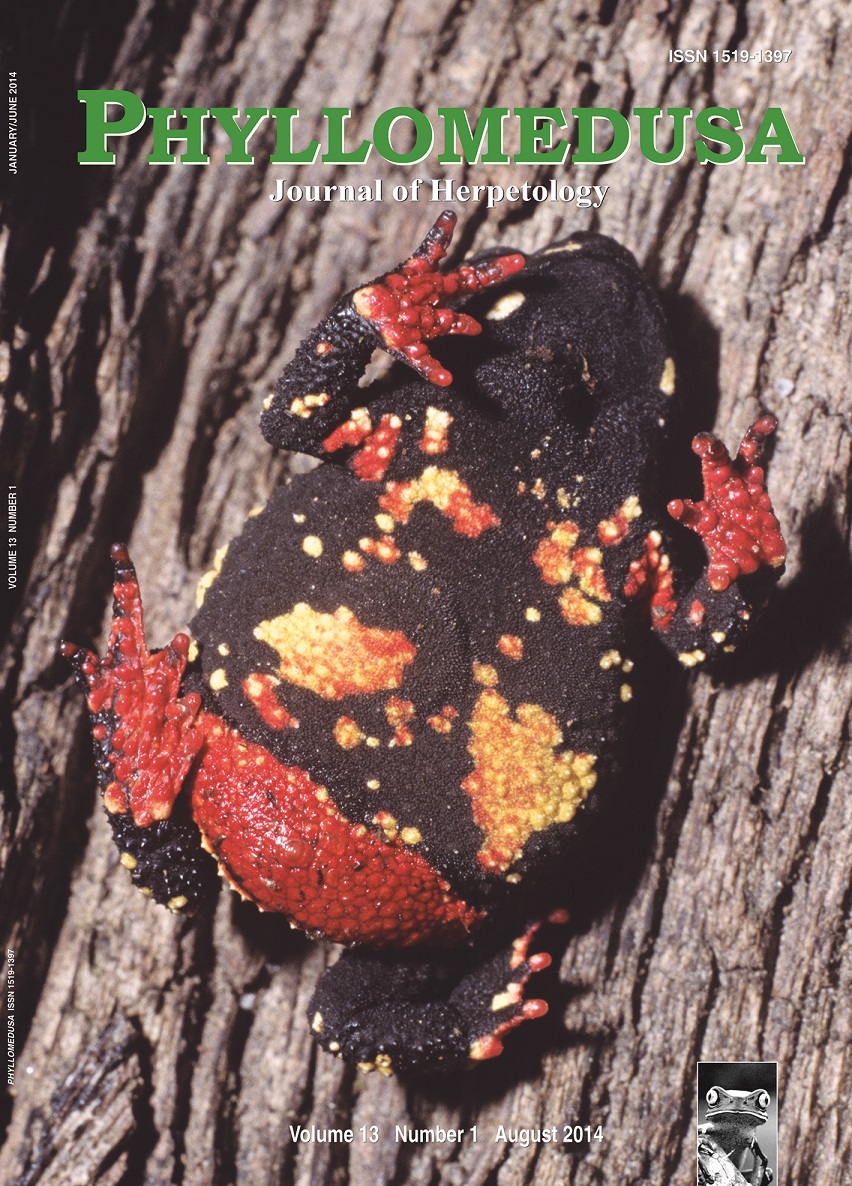Temporal and ontogenetic variation in the escape response of Ameiva festiva (Squamata, Teiidae)
DOI:
https://doi.org/10.11606/issn.2316-9079.v13i1p17-27Keywords:
activity pattern, age, flight initiation distance, lizard, optimal escape theory, time of day.Abstract
Several factors have been shown to affect lizard escape behavior (flight initiation distance or FID, the distance between predator and prey when the prey initiates escape). Patterns of daily activity, such as foraging or movement behavior, vary with respect to time of day, supporting that escape responses may vary temporally as well. However, there remains scant information regarding the effects of time of day on FID. During peak activity, FID may decrease due to increased cost of giving up resources (e.g., prey or potential mates). An alternative hypothesis is that FID may increase because lizard activity in general may serve to alert a predator in advance of its approach. A lizard in this scenario may be favored to flee sooner rather than later. Moreover, juvenile and adult lizards of multiple species may differ in behavioral, ecological, and morphological traits that could influence escape decisions. I tested the effects of time of day (in 30-min intervals) and age (juvenile or adult) on the FID of a tropical whiptail lizard, Ameiva festiva in Costa Rica. I found that A. festiva escape responses varied with time of day such that in general, their FID decreased throughout the day. In addition, I observed a peak in FID from mid to late-morning that matches published estimates of peak activity times for A. festiva. Overall, juvenile A. festiva initiated an escape response sooner than adults, which may be related to differences in perceived risk associated with differences in size and predator experience between the two age groups. I conclude that escape responses may be contingent on both the activity level of the animal at the time of approach and its age.Downloads
Download data is not yet available.
Downloads
Published
2014-08-30
Issue
Section
Articles
License
All material originally published in Phyllomedusa belongs to Escola Superior de Agricultura Luiz de Queiroz - Universidade de São Paulo. All contents are under a license of Creative Commons BY-NC-ND.How to Cite
Lattanzio, M. S. (2014). Temporal and ontogenetic variation in the escape response of Ameiva festiva (Squamata, Teiidae). Phyllomedusa: Journal of Herpetology, 13(1), 17-27. https://doi.org/10.11606/issn.2316-9079.v13i1p17-27



 Impact Factor (JCR): 0.400
Impact Factor (JCR): 0.400 CiteScore: 1.0
CiteScore: 1.0